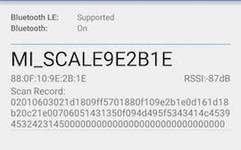UWB Keys: A New Smart Car Pathway Priced at 700 Yuan
Car keys have gone through four stages: mechanical keys, remote keys, PEPS, and digital keys, with digital keys further divided into three technical routes: BLE, NFC, and UWB. Due to the superior safety, positioning accuracy, and range of UWB compared to BLE and NFC, it has become the optimal technology for automotive digital keys. PEPS … Read more









